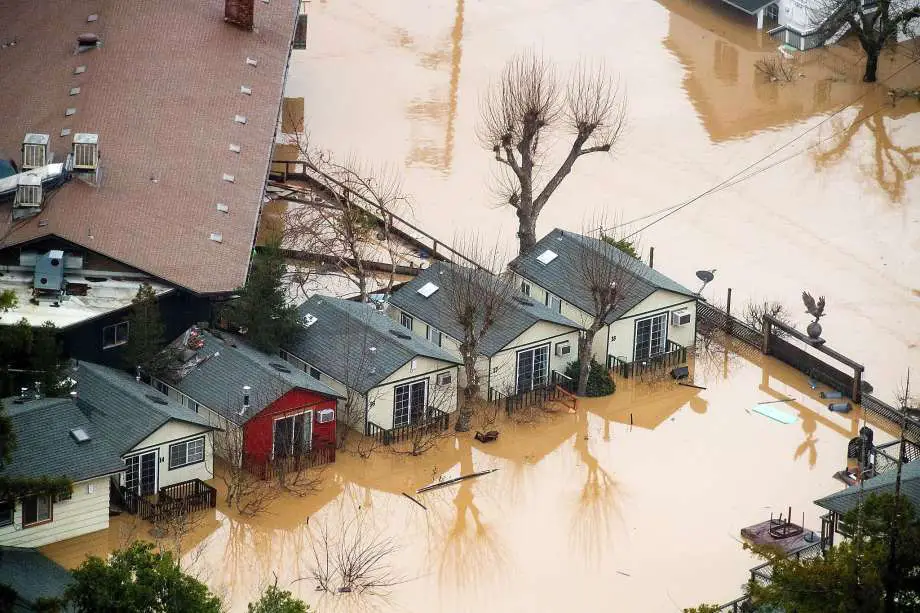
Our team is devoted to helping homeowners make the right coverage choices. We adhere to strict editorial guidelines to maintain the accuracy and relevance of our content. This article may feature our affiliate partners who provide us with compensation; however, our reviews remain independently formed. For further details, please refer to our editorial policy.

Every family fears the daunting day in which their city or municipality declares a mandatory evacuation due to weather. Sadly, mandatory evacuations happen almost annually in certain regions of the US. In the event of a hurricane or a flood, people who are ordered to evacuate often have no nearby family to stay with, forcing them to spend days or weeks in hotels as they wait out the storm.
The costs associated with a mandatory evacuation can add up fast. Whether it’s food, gas, or lodging, is there a way to get reimbursed for these expenses? Luckily, yes. What many homeowners don’t know is that homeowners insurance policy might cover those bills under the “additional living expenses” clause.
Compare home insurance quotes Find cheap rates from the best providers in your area
Nearly every standard homeowners insurance policy available today includes insurance for added living costs or the exhaustive loss of home use. The objective of this stipulation is to offset the added costs that can amass when your house is unlivable. Expenses can include motel/hotel stays, meals, self-storage fees, and even gasoline. The coverage can be a lifesaver, specifically to those living in regions susceptible to weather-related incidents. Unfortunately, the additional living expenses coverage clause can be misunderstood.
In the case of flooding, standard homeowners insurance will not cover the flood damage and would not contribute additional living expense insurance if your dwelling becomes unlivable due to a flood itself. Additionally, many flood insurance policies will also not carry an additional living expenses clause, leaving you to foot the bill if flooding is to blame for your temporary situation. In the event that your home is uninhabitable due to flood, you might be able to contact FEMA for help with these expenses.
Thanks to the additional living expenses clause found in most homeowners insurance policies, expenses will be offset in the event of a mandatory involuntary evacuation. Let’s say the forecast is calling for a hurricane and you are told to evacuate, the additional living expenses clause would kick in to cover lodging, restaurant meals, and any supplies. However, there is a catch. A mandatory evacuation will only be covered if the cause of the evacuation itself is covered. In the aforementioned instance, a hurricane would be covered, whereas an evacuation due to heavy rainfall/flooding would likely not be covered. Wind damage, hurricanes, and tornadoes are typically all covered through homeowners insurance.
Since coverage for a mandatory evacuation can be so nuanced, it is important to know the limits of your homeowners coverage. For the most part, home coverage will cap supplementary living expenses to a chunk of your house coverage. Largely, this is about 20 percent, with a time restriction of approximately 12 months. In this case, if your home is insured for around $300,000 and you are forced to spend $50,000 on additional living expenses, any help would disappear at the end of the 12th month. In California, the time limit is a more charitable 24 months. Understand the limits on your policy and then set a monthly budget. Project just how long it might take for you to get back into your home in the event of a disaster. If you estimate well-over the amount covered by insurance, you might want to beef up your policy.
Of course, even if you hold additional expenses coverage through your homeowners policy, you’re going to need to keep a steady trail of receipts during a mandatory evacuation. Insurance companies will generally only reimburse for expenses that are incurred, they won’t simply dole out a lump sum. This is to prevent people from collecting a check and then going to live rent-free with family. Keep records and receipts from every expenditure. From hotels to meals, keep a running tab of proof for every purchase. Without receipts, you’re not going to receive payment from the insurance company.